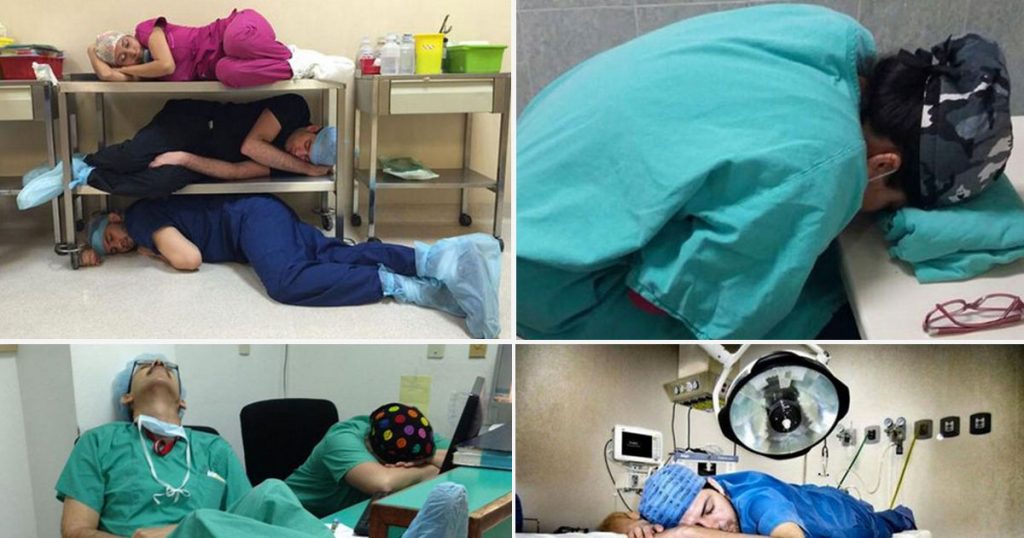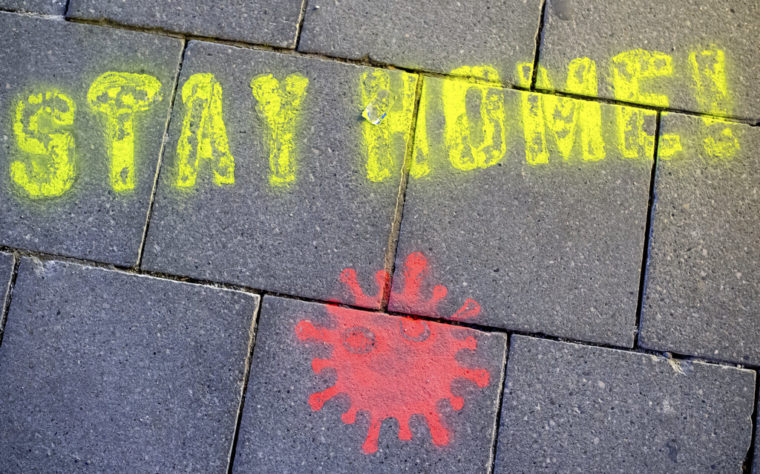
By this time, I would bet that nearly everyone on Earth has been touched one way or another by COVID-19. Global pandemics are an unfortunate experience that unites all of humanity. Similarly, medical providers around the world have been called upon to step up, just as they would in any similar event whether historical, fantastic, or science fictional.
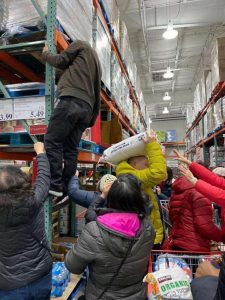
Nurse Green treating consumption patients in a New York sanitorium in 1843, Doctor White treating AIDS patients in Zimbabwe in 1997, and Healer Black treating bubonic plague patients in Constantinople in 546 all have the same general goals and similar biological challenges.
Medic Silver treating space plague in patients on the Third Moon of Alpha Centauri is likely to find xirself facing the same situation.
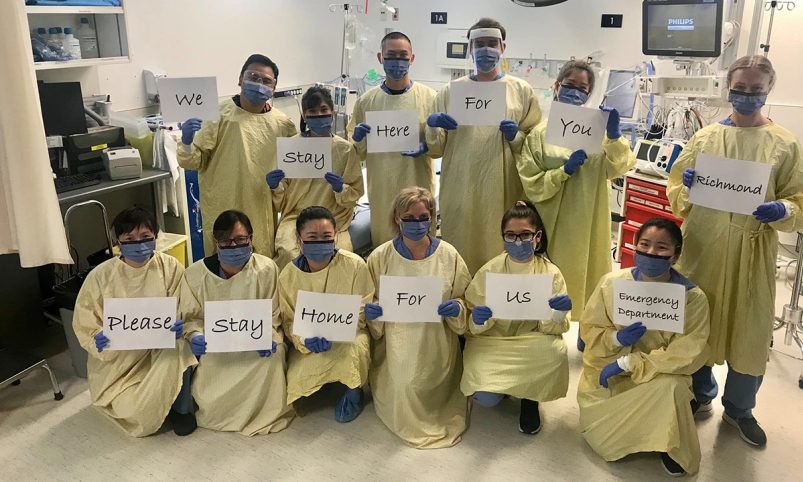
(Richmond, Maryland)
For most of us, all but urgent care medical appointments have been postponed or cancelled. Even urgent care has changed drastically. I recently had an appointment for a root canal in a nearly empty clinic. The receptionist told all patients to wait in their cars until called, and only the dentist, his assistant, one office worker, and I were in the building the entire time I was in the chair. Of course, most of us see these changes from the perspective of the patient. What about the providers?
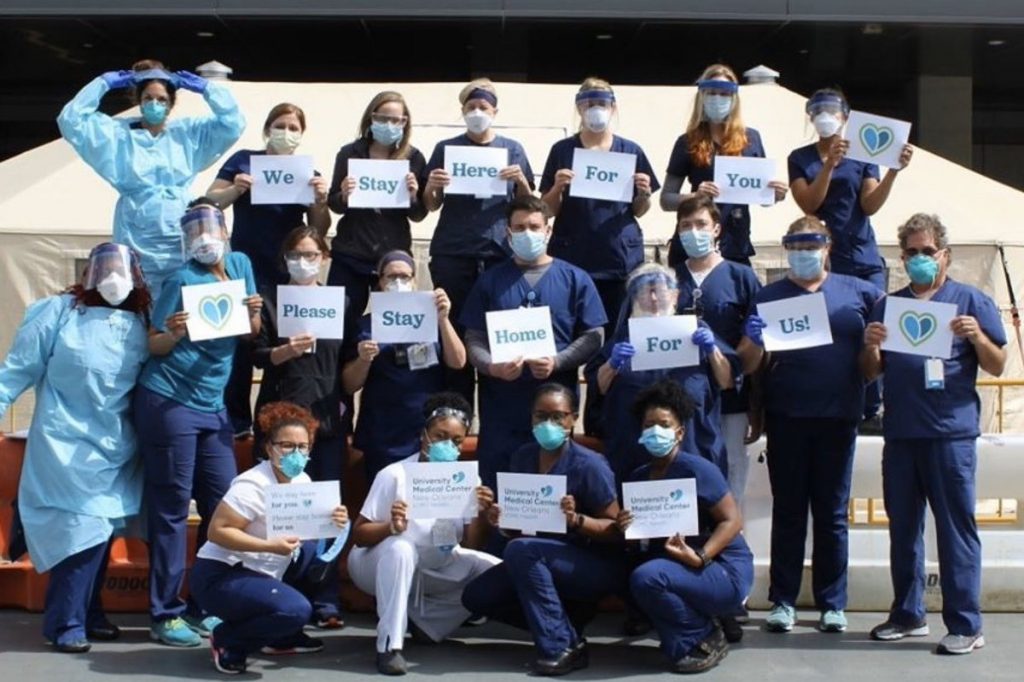
A chiropractor who has a one-man practice told me that so many patients are canceling (or not making appointments in the first place) that he is worried about what’s happening to his personal income, and whether he can continue to pay his one office worker. My dentist is the head of a small practice (fewer than 50 employees) and he said the same thing: trying to keep the practice open and employees paid when they are seeing only urgent care cases. A dental assistant, recognizing that the practice is vulnerable, worries that she won’t be able to pay the rent.
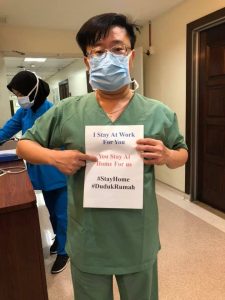
These people are the tiniest of samples and most would agree they aren’t front-line workers in this pandemic. For that perspective, I am fortunate to have a colleague who lives in a veritable nest of doctors, nurses, medical students, and first responders, and here are things they had to say.
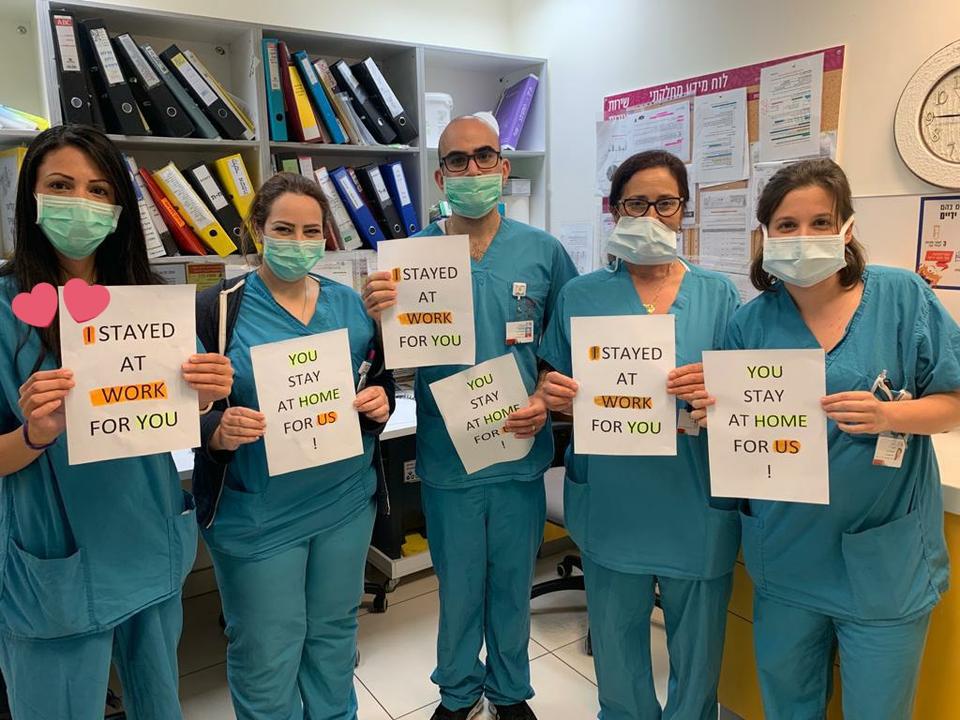
Is this sort of thing what you had in mind when you applied to med school?

Absolutely not. When I went to medical school, I thought I wanted to go into surgery, but I realized that I hated rounding and getting dressed up. As far as the current pandemic, I don’t think anyone envisioned something like this. We haven’t had anything close to this since 1918 with the Great Influenza Pandemic. And in probably every humans’ mind, medical care has advanced so much since then. How could anything like that happen again?
Not at all. I had visions of helping patients overcome their physical or medical disabilities so they could live their lives. Now I am at the frontline of protecting about 100 elderly, disabled patients who were recently hospitalized for other reasons and are now at risk for coming down with COVID-19. We have already diagnosed it in quite a few of our patients. It is likely many of the others also have it but only mild or asymptomatic cases. However, they are still contagious, and we must be extremely careful so we don’t spread it around to other patients, ourselves, and our families.
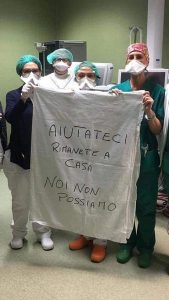
I always knew working with high-risk patients meant that I would be saying a lot of good-byes, and I thought I was okay with that. I could at least make them feel a little bit better, maybe smile a little. But now I feel like I’m saying that final good-bye every time I leave a patient’s house. Like, will this person even be here the next time I come over?
Pretty much, yeah. I always knew the communities where I wanted to work would be full of infection and contagion, without a lot of medicine or cleaning. But there was always something I could do, yeah? Now there’s no medicine, no vaccine, no ventilators, nothing but me in the same mask I’ve been wearing for a week and trying so hard to convince families that grandmother must stay away from her grandbabies.
Nope. I think a lot of this is media driven. And people fear arguing against safety. But being too safe can have its own trade off and risk other forms of safety.
If we did not want that responsibility, we would not have chosen this career path.
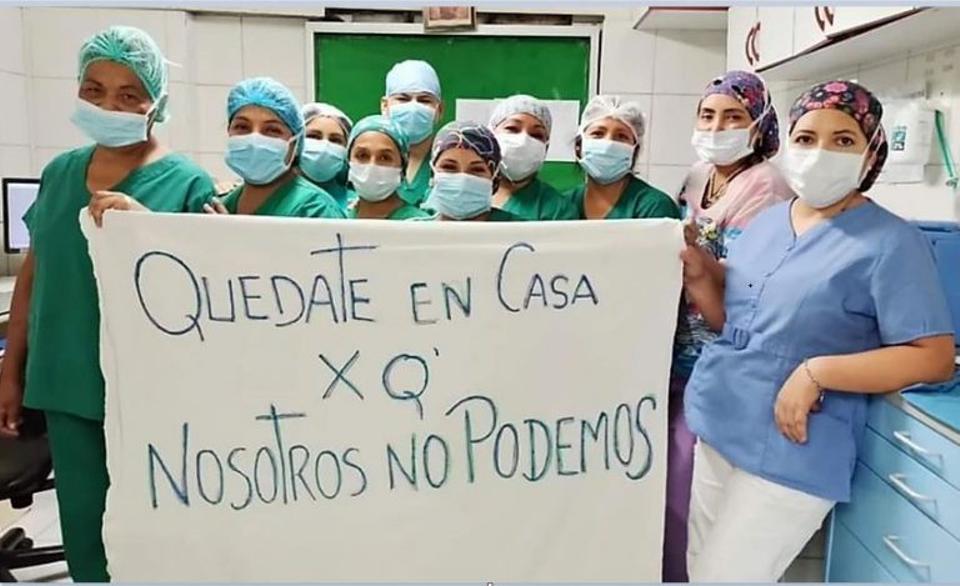
In general, how do you avoid bringing work stress or infections home?
Not bringing infections home is easy. The scrubs I wear for work stay and get laundered at the hospital. I have separate shoes for the hospital which stay in my office. And I use hand sanitizer before I leave the building. We deal with some pretty nasty resistant bugs at work. I don’t need to bring that home to my wife and daughters. I try not to let work get to me. I try to make sure everyone is having fun at work, so it keeps my stress level down. But even with that, it can build up.
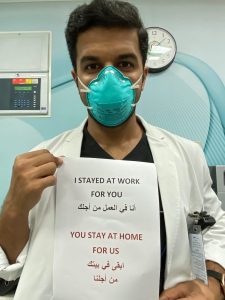
It’s been tough, lately. I cry every night. I try not to, but I see so many people sick and nothing I can do. I never let my family see me.
Showers when I get to work and before I leave work. There’s a clean line between my two lives. I don’t bring any of that culture home with me. No stickers or special license plates on my car, just the parking decal.
The key to avoiding bringing infections home is the same as avoiding spreading it at work, always good hygiene and using protective equipment. There really is no difference. And as long as I work as hard as I can and do the best I can, stress is not an issue. Only fatigue, which comes to anybody who works long, hard hours.
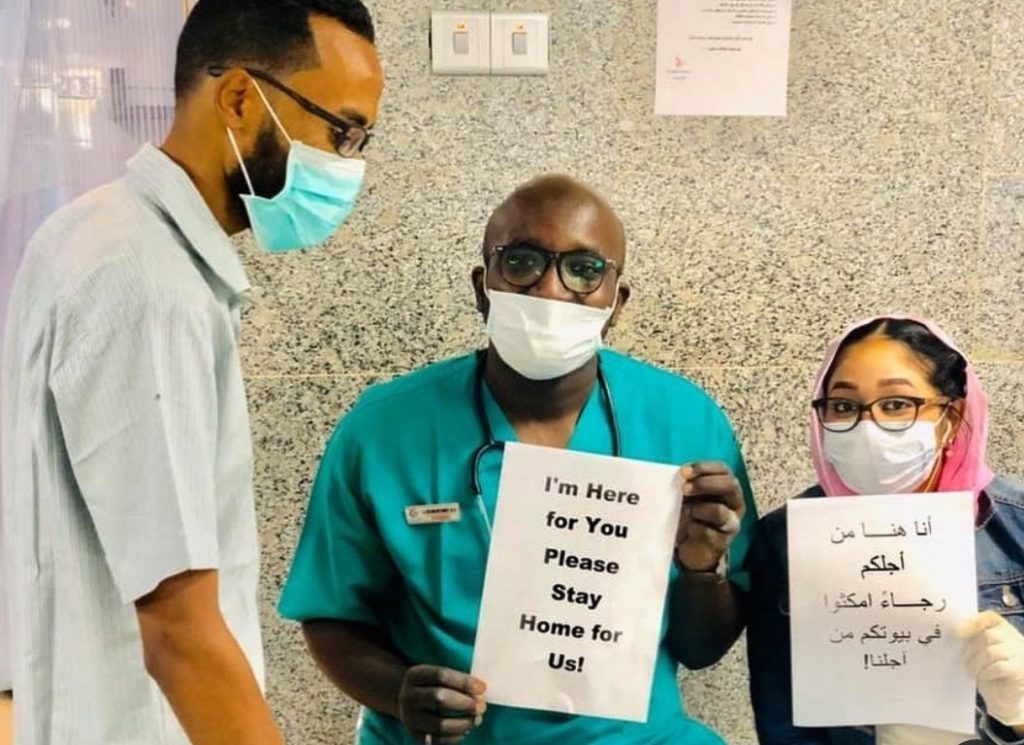
Do you prioritize symptoms, patients, contagion, contact, etc. differently now?
It used to be mostly elective or scheduled operations, so we had time to make sure patients are prepped and optimized for surgery ahead of time. On the bus [ambulance], we don’t get to pick and choose our patients. They call us when they are in their worst time. There’s a big difference between a sterile operating room, and the side of the road at 2am. But in the end, a patient is a patient. It’s about the ABCs and then go from there.
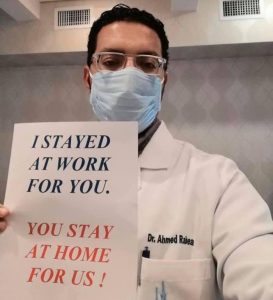
Patients have prioritized themselves differently. Nobody will come to the clinic if they can find something else to do. I had a girl come to my house with a broken arm because her parents did not think she should be risk being exposed.
PPE is at a premium. At work, I’m reusing my N-95 masks between patients because otherwise we’d run out. But if I have to intubate a known or suspected COVID patient, we are in full protective gear to include a respirator. We do have new protocols in place for use of PPE on the ambulances when we suspect a COVID patient.
So far we do not have to prioritize anything other than can they leave their room on a closed ward? Should they be cohorted with someone else who also has the virus? Many of our patients have other contagious diseases or infections; we must be careful.
Actually less people are calling 911. Looking at the county stats the call volume has dropped 10-20% over the past month. Generally you can look at a person and tell if they are in distress or not. There used to be a lot of people who called for help when they just wanted a ride. I typically deal with one patient at a time.
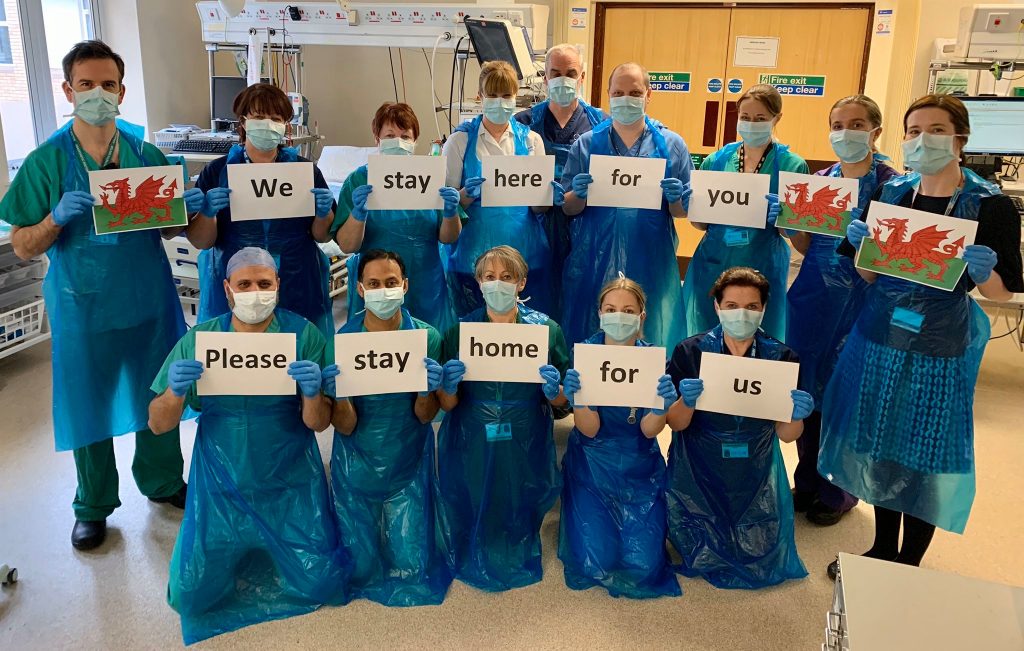
What behaviors in the general public infuriate you from a health care view (at any time, not just now)?
I used to get really worked up with people smoking. There is so much data about how bad smoking and drugs are for you, yet young people still start using them. But I realized I can’t change everyone, and it would just cause me undue stress. So I just focus on who I can help in front of me. I also realize people are going to make their own choices, good or bad. All I can do is give them the information and hope they listen to it.
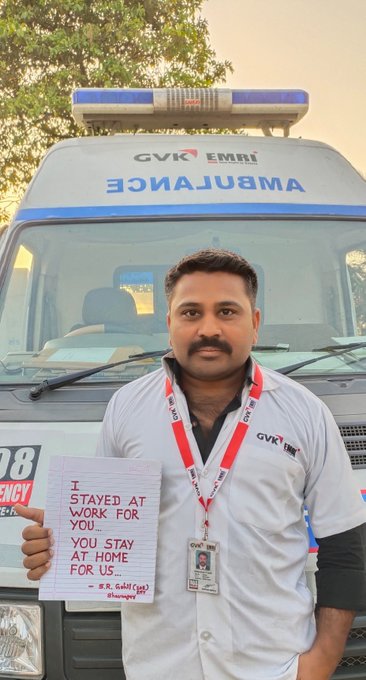
There are so many people who are just forgotten about and so they have no one to help them. They are stuck at home because they are old or no one will talk to them because they are weird or whatever. And then they are sick and no one knows because no one thinks to go and check.
People get a little bit of information and then suddenly they’re the expert and telling everyone else what to do and then people actually do it! Or they follow what the aunties say to do, even if it makes no sense, just because no one wants to upset the aunties. Like, drinking fever tea is not going to cure COVID-19, even if it makes your fever feel a little better.
The only behavior that infuriates me is when I see people carelessly congregating and likely spreading the virus but acting as if it is a joke. It’s infuriating because they are then passing it on to even more possibly highly vulnerable people who have nothing to do with their irresponsible behavior. Otherwise the public’s behavior does not infuriate me. I feel very bad for family members who are not allowed to visit their family members. Must be terrifying being in such a helpless position. When they get obviously upset or even angry, we know it’s understandable.
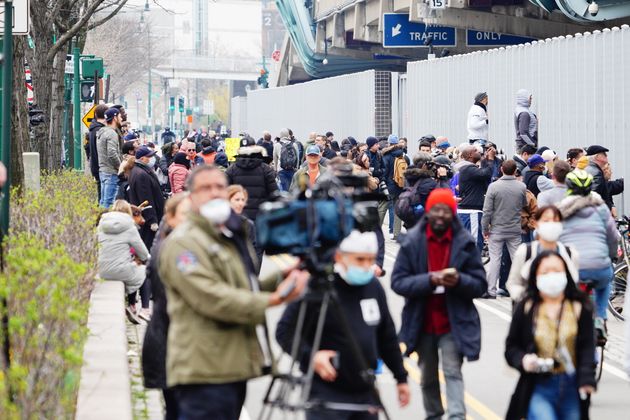
Passing the liability on to others. “Oh my insurance or doctor said call 911.” And the fact that life is not sunshine and rainbows. Just because you’re not feeling well doesn’t mean you’re going to die.
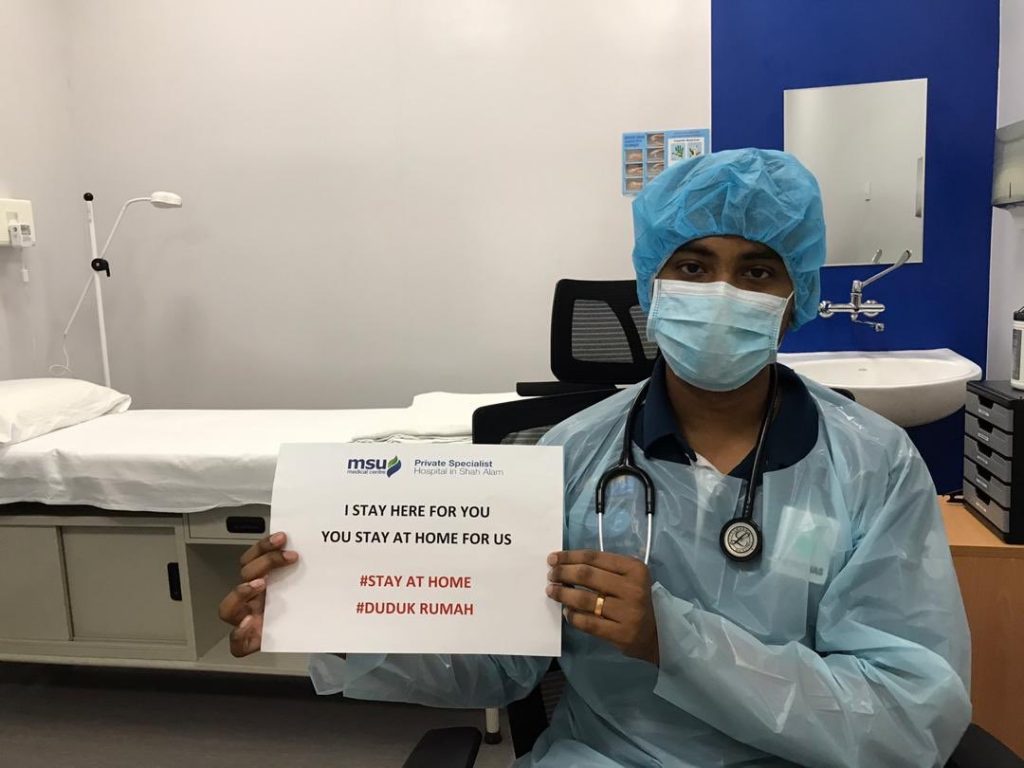
Have you changed your routines at home or work in the past few months?
I always believed that the immune system is something that needs frequent practice to be strong, and I still do believe that. But with COVID-19, the game has completely changed. I’m now washing my hands much more frequently, or using hand sanitizer whenever I touch something public in the hospital. I wipe my desk, computer, phone, and ID badge down with a sanitizing wipe before I leave work. And I always wash my hands when I walk into my home first thing before I do anything else.
Patients who used to come to me for stomach virus and insulin checks stay far away from the clinic now, especially the pregnant ladies. Now I see only people who are afraid they have coronovirus or that their aunties have coronovirus.
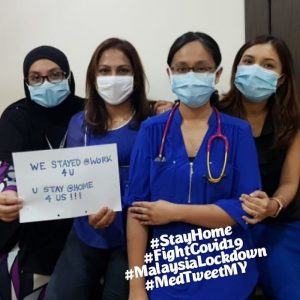
I share a flat with other medics, but I’ve moved back into my parents’ house, where the cellar has a separate washroom and entrance. It’s easier to stay isolated there, even if it’s a longer commute.
In the past two or three weeks our entire day has changed. We do not focus as much on the primary reason the patients are with us, which is to be evaluated and treated for various disabilities. Instead, we are more focused on signs or symptoms suggesting that they may be coming down with the virus. We don’t want to miss them for their sake, and for the increased risk of them spreading it to other patients and staff.
I definitely pray a lot more. I’ll admit it’s a little strange to see His Holiness over video broadcast in an empty room, but it’s very nice to know that I’m not alone to say the Rosary even when I can’t go to Mass here.
Stepped up the disinfecting. And wearing more healthcare protective equipment. We don’t got in nursing homes unless they can’t be brought outside. And we tell people to meet us outside.
I spend more time at each house because a lot of my patients aren’t having any other visitors. All the community outreach stops at the front door now.
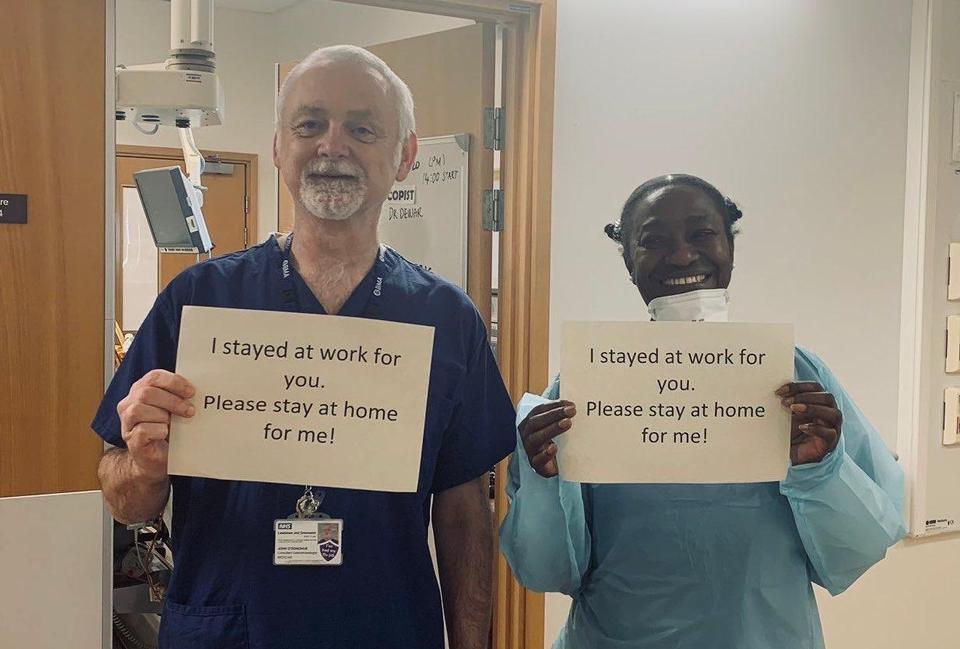
Have you seen anything good as a result of the recent insanity?
I try to focus on the good, but it’s so hard when there is so much bad. I guess… traffic is fantastic now. I think everyone is trying to do their part to support local restaurants and businesses. Most people seem to want to do the right thing.
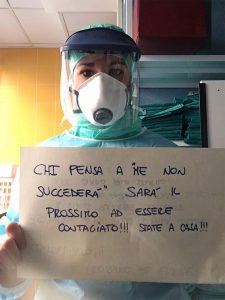
With so many people made to stay at home, I think a lot of families are spending more time together. And everyone seems to be thinking up some way they can help, kids giving birthday money to shelters and medical students doing childcare for health workers.
Communities are recognizing that shop clerks, drivers, cleaners, they’re all absolutely necessary. It’s not just the politicians and rich folk who matter. Where would we be without rubbish clean-up and food delivery?
Difficult times like this often bring out the best that is already in people. The best has been in them all the time, but now they are expressing it and experiencing it more.
People are learning that hospitals are disgusting places and that there are risks in going to them.
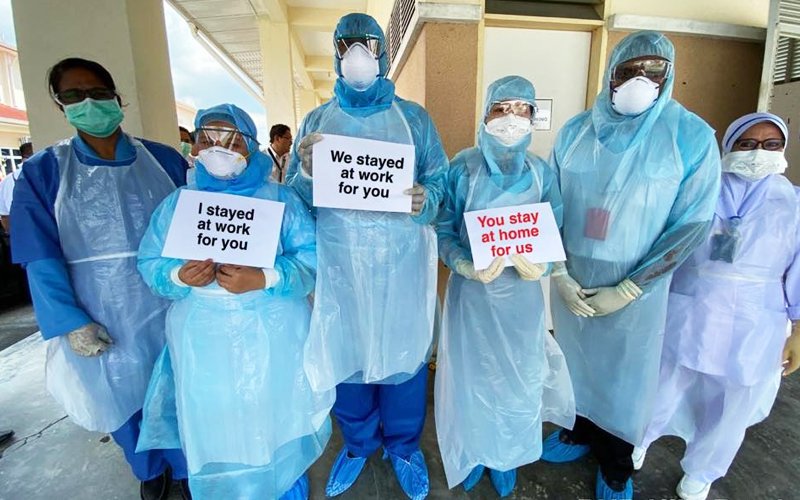
Is there anything you wish management, government, media, or whomever would do differently?
All those different entities do so many things wrong, it’s hard to know where to focus. I’ve learned for the most part that there is little that I can affect on a large scale, such as with government or the media. So I tend to not pay attention to either much.
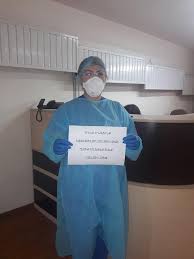
Some countries have been able to mobilize testing of millions of people very rapidly. It would help us to determine who has already had the virus and is very low risk for acquiring it and passing it on, and is therefore fairly safe working on the front lines. They can also get back to work in what is currently called nonessential businesses. Without enough testing, we are fighting this battle blindfolded.
Why do travel companies keep offering cheap tickets?!
The media has been distorting the message. We keep hearing how certain drugs have not been approved for this virus, but really nothing has been approved. That doesn’t mean we shouldn’t at least try. About 20% of all medications used have not been approved for the thing doctors are prescribing them for. This is called off label use and we use this approach all the time for many medications. For a governor to ban certain medications because they have not been approved is the same as practicing medicine without a license.
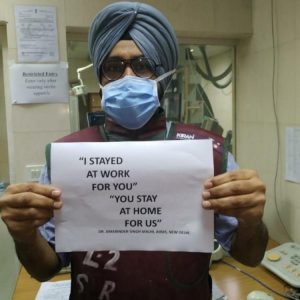
The amount of bad information floating around is so dangerous. I understand that people are scared and no one has all the answers, but I wish people would stop telling things that aren’t true. Washing your mouth with bleach, drinking boiling water, filling your room with smoke… No, don’t do these things.
I wish there was more reliable information available in every language. My neighbours like to assume that, because I speak English, I have all of the answers that are being hoarded by British and American doctors.
It’s become a social and status symbol to say that you’ve been tested or have it. No one cares. Just stay home.
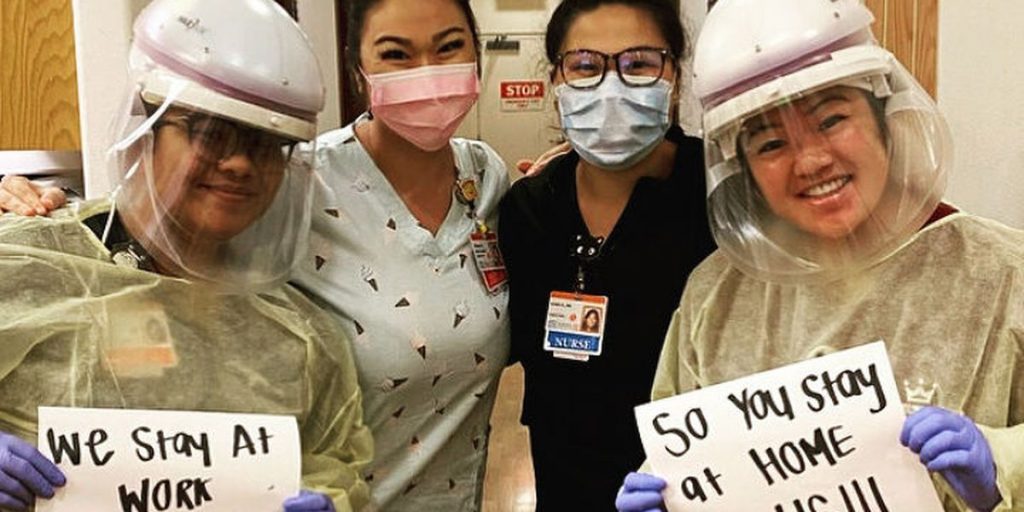
What keeps you up at night?
The one thing that has kept me up at times is when I have a patient that has a complication, whether I contributed to it or not. I tend to “Monday Morning Quarterback” every little thing I did and blame myself even when it’s not my fault.
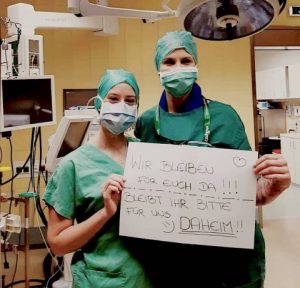
Nothing currently keeps me up at night. As long as I do my best in my family is okay, I sleep well. It’s been a long time since I’ve been unable to sleep.
I worry about the people no one seems to help – the families who can’t get food, the people stuck behind barricades, the old ones left at home with no neighbors to check on them.
Dead kids tend to make it harder to sleep for a while.
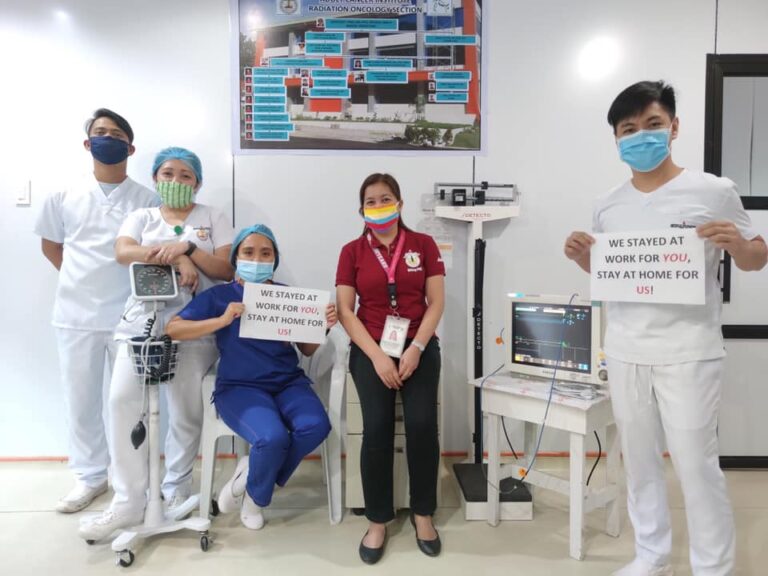
The question we all really want to ask: How do you keep your hands from drying out and cracking when you wash them every twenty seconds?
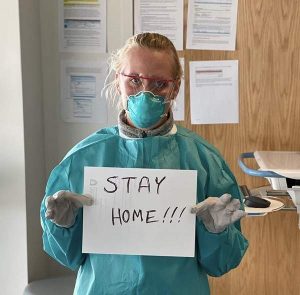
Make sure you rinse really well. Little bits of soap film, especially in the knuckles or between your fingers, can cause irritation.
Soap and water is so much better than hand sanitizer. The alcohol in hand sanitizer is usually what dries out skin. Plus, soap and water is more effective.
Lotion, but make sure it’s not scented.
